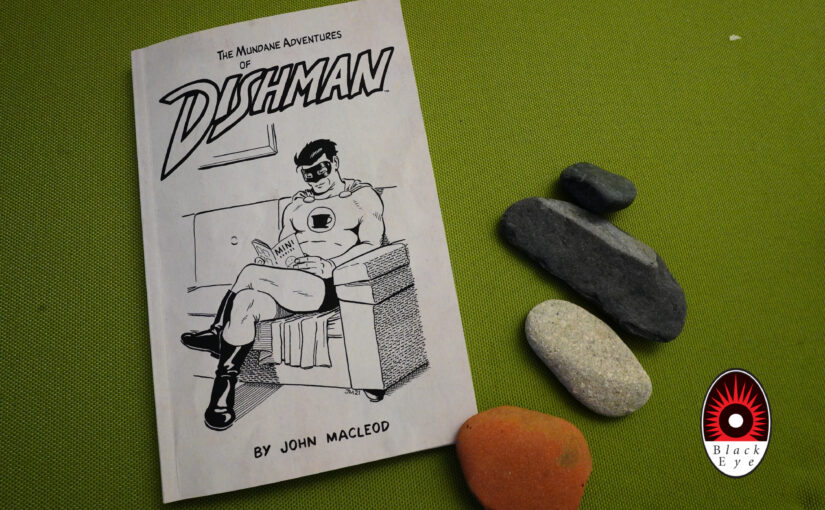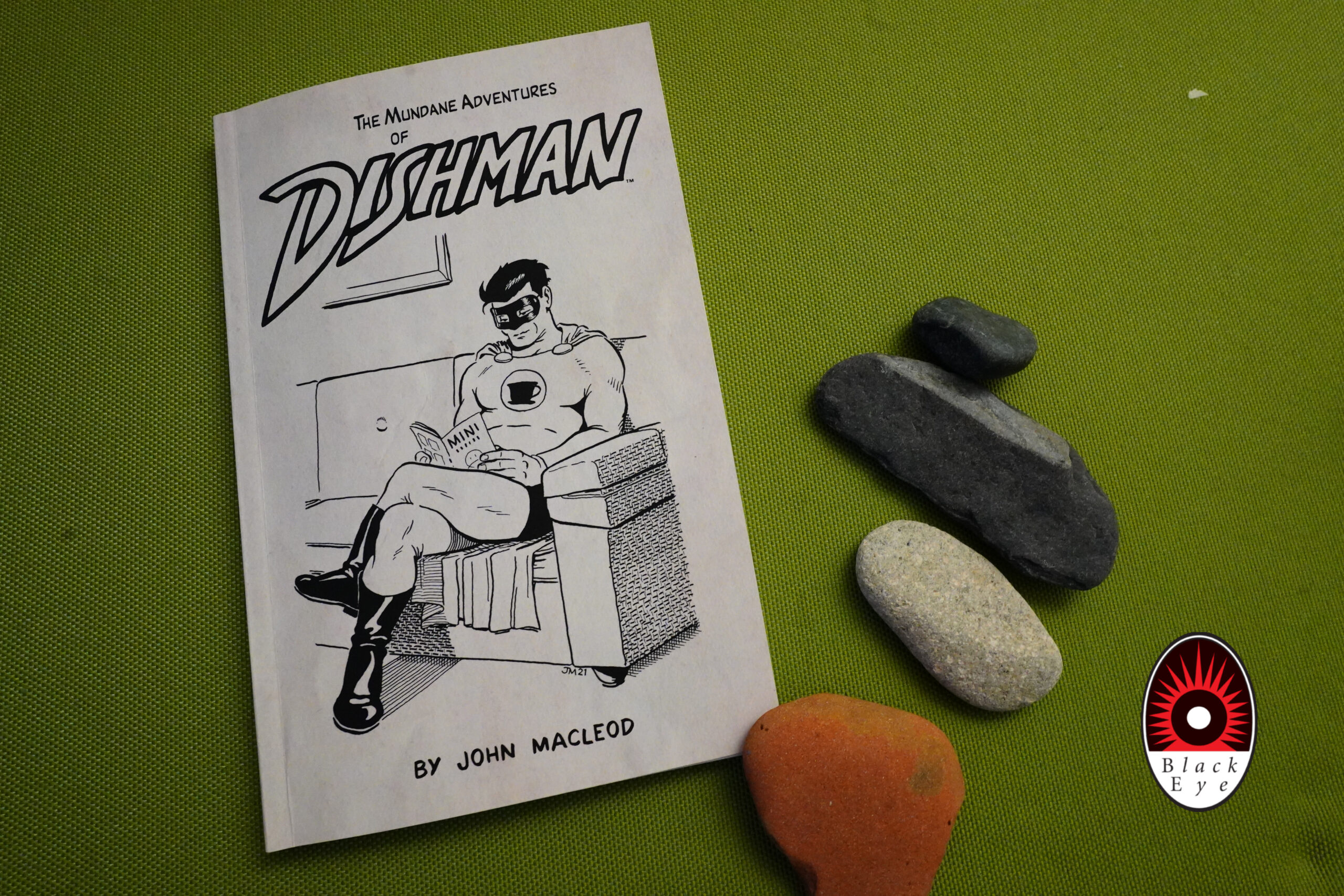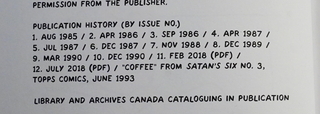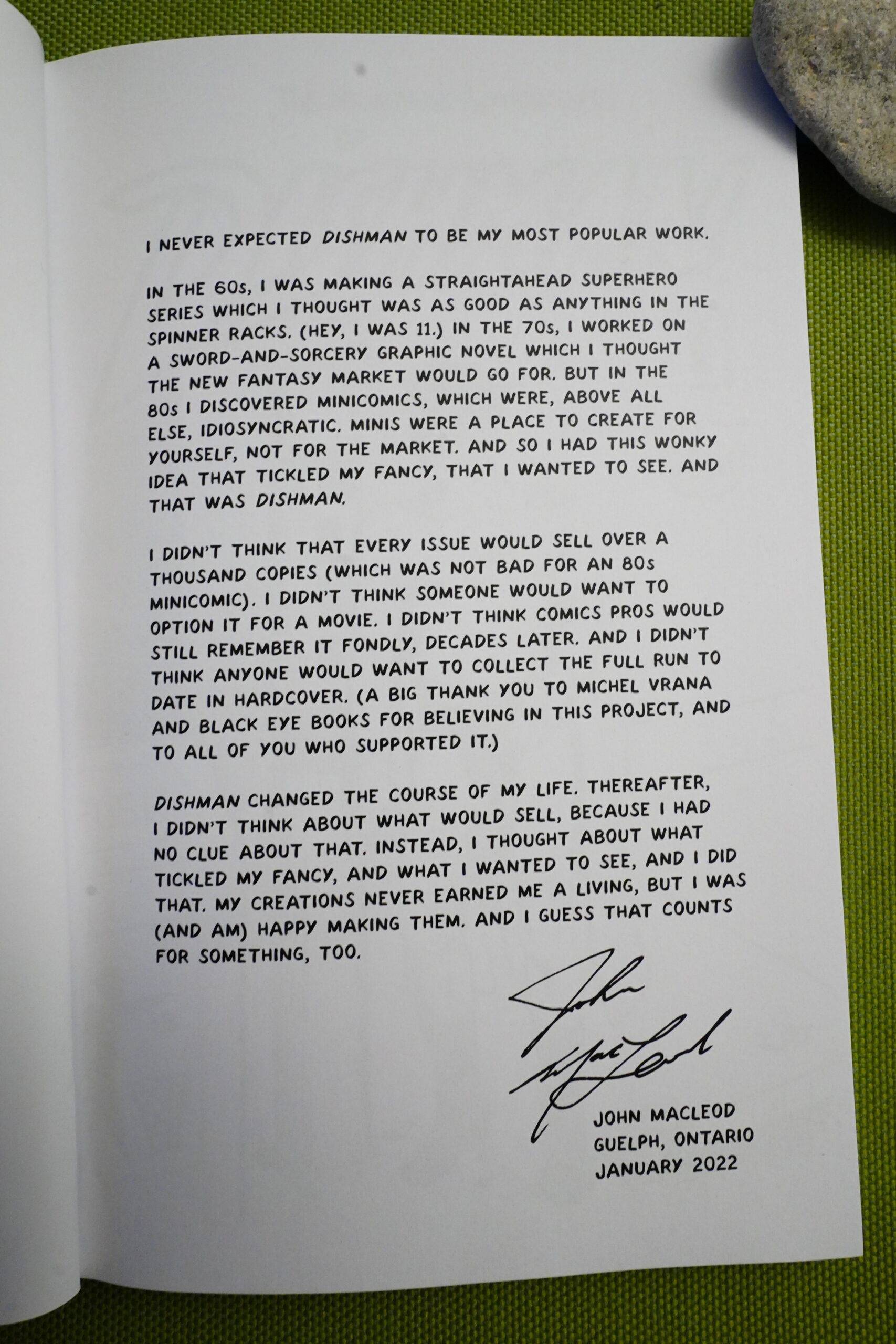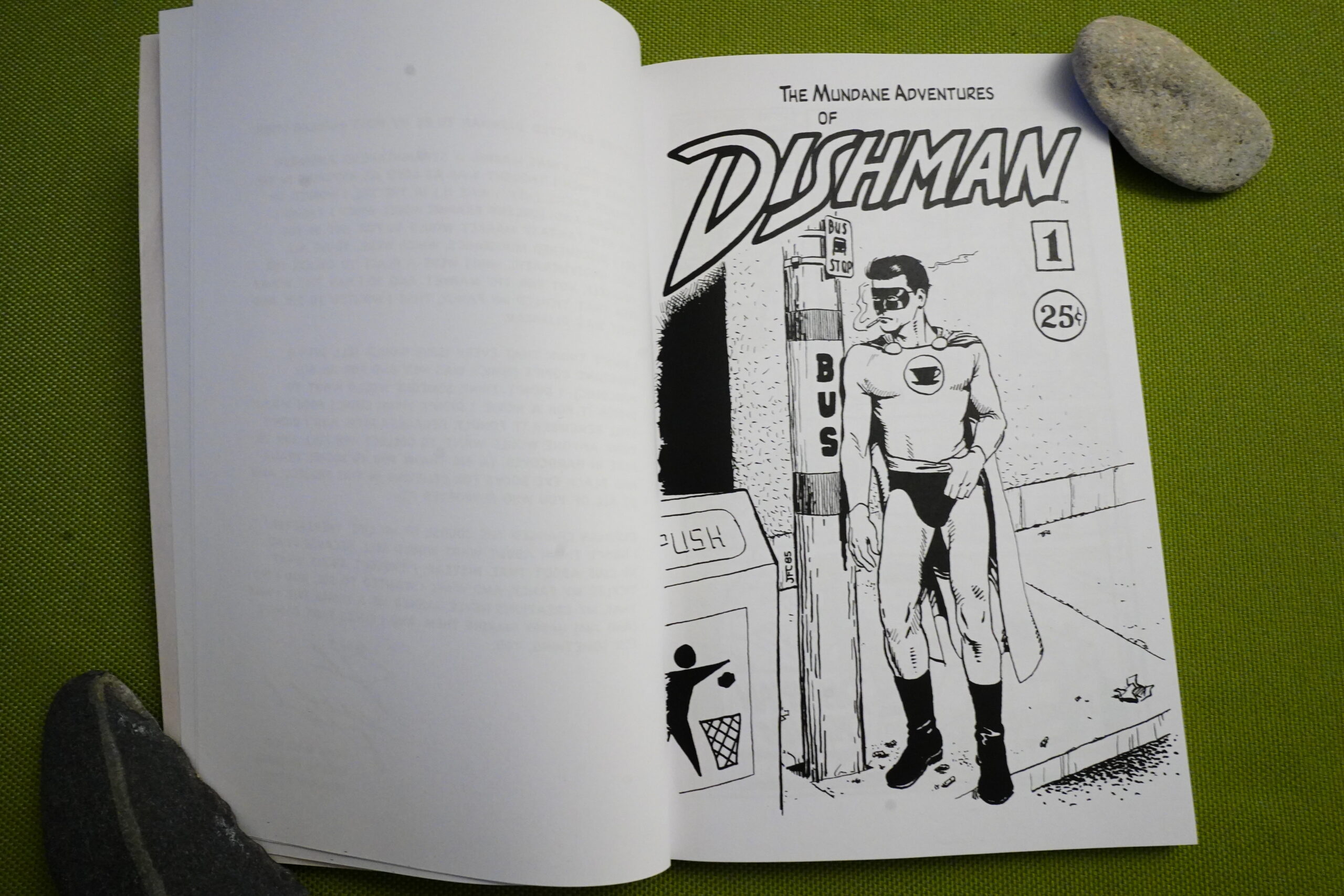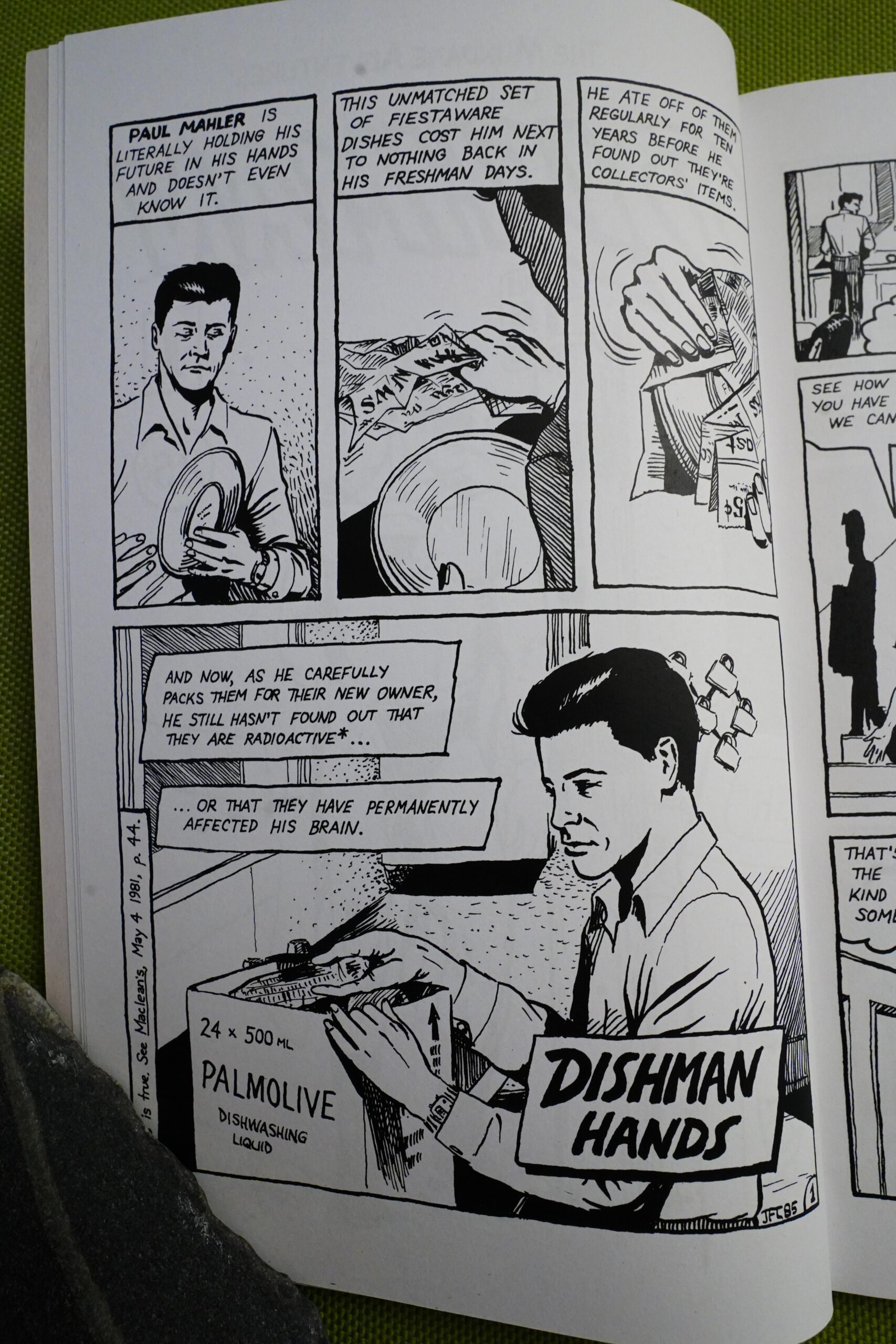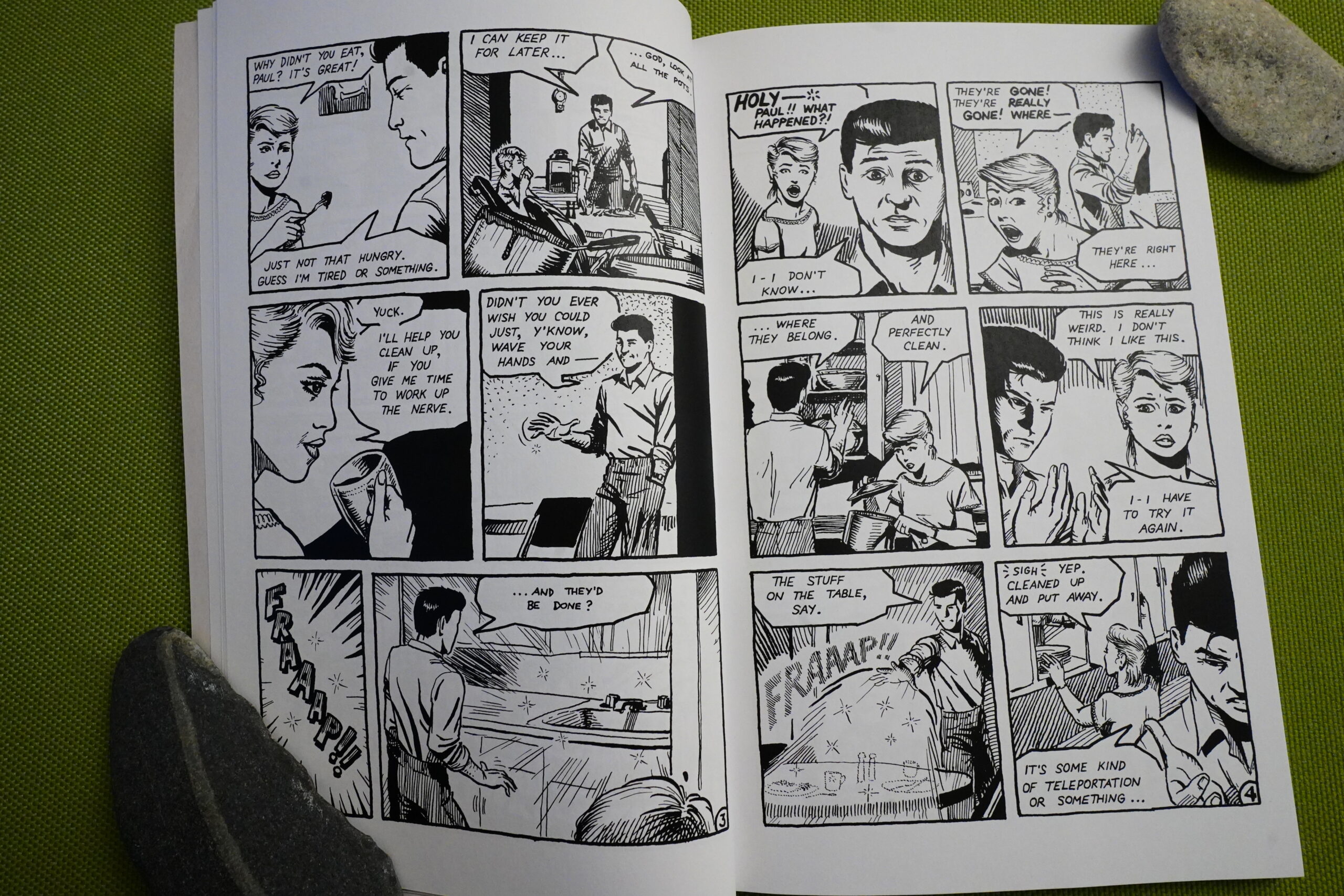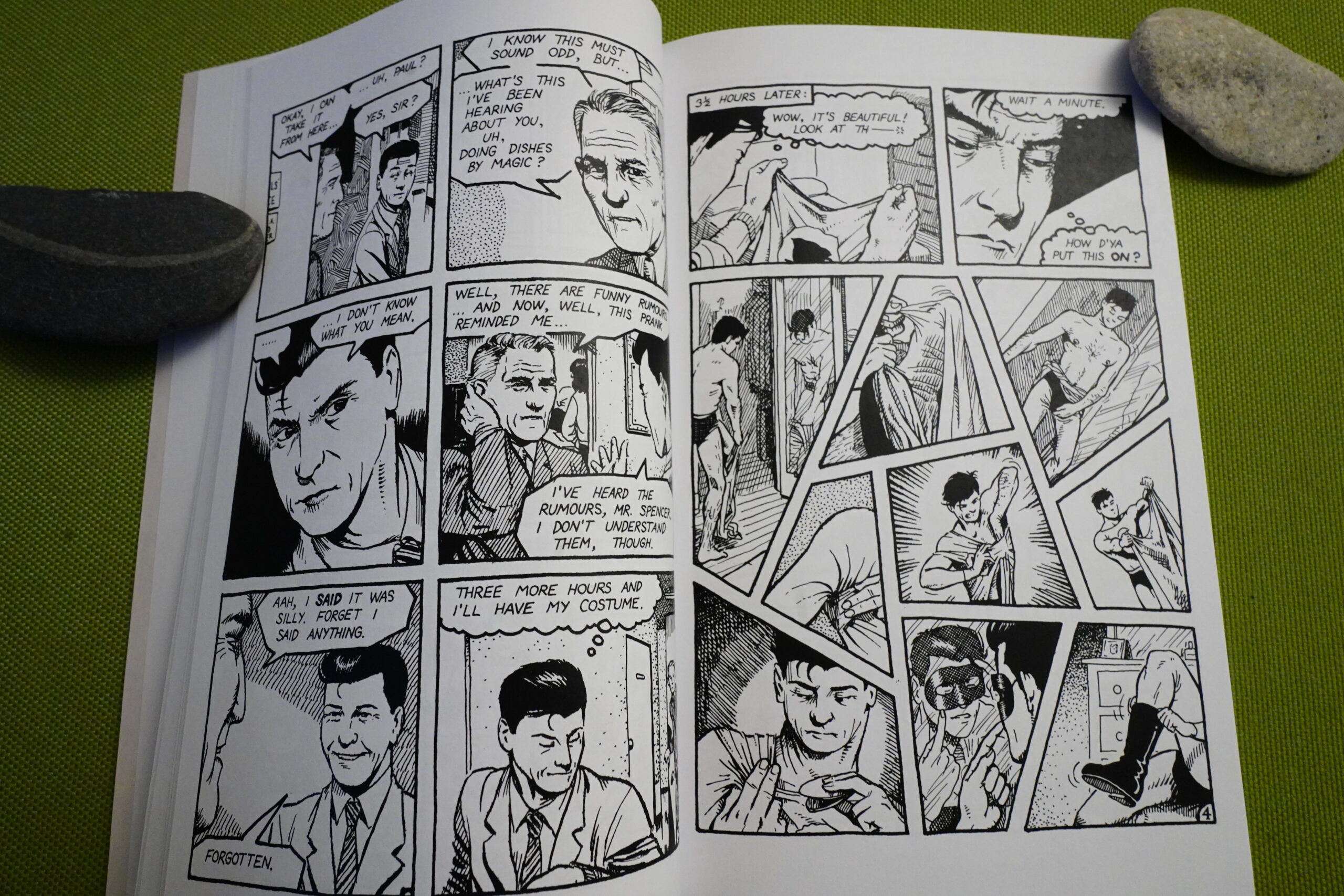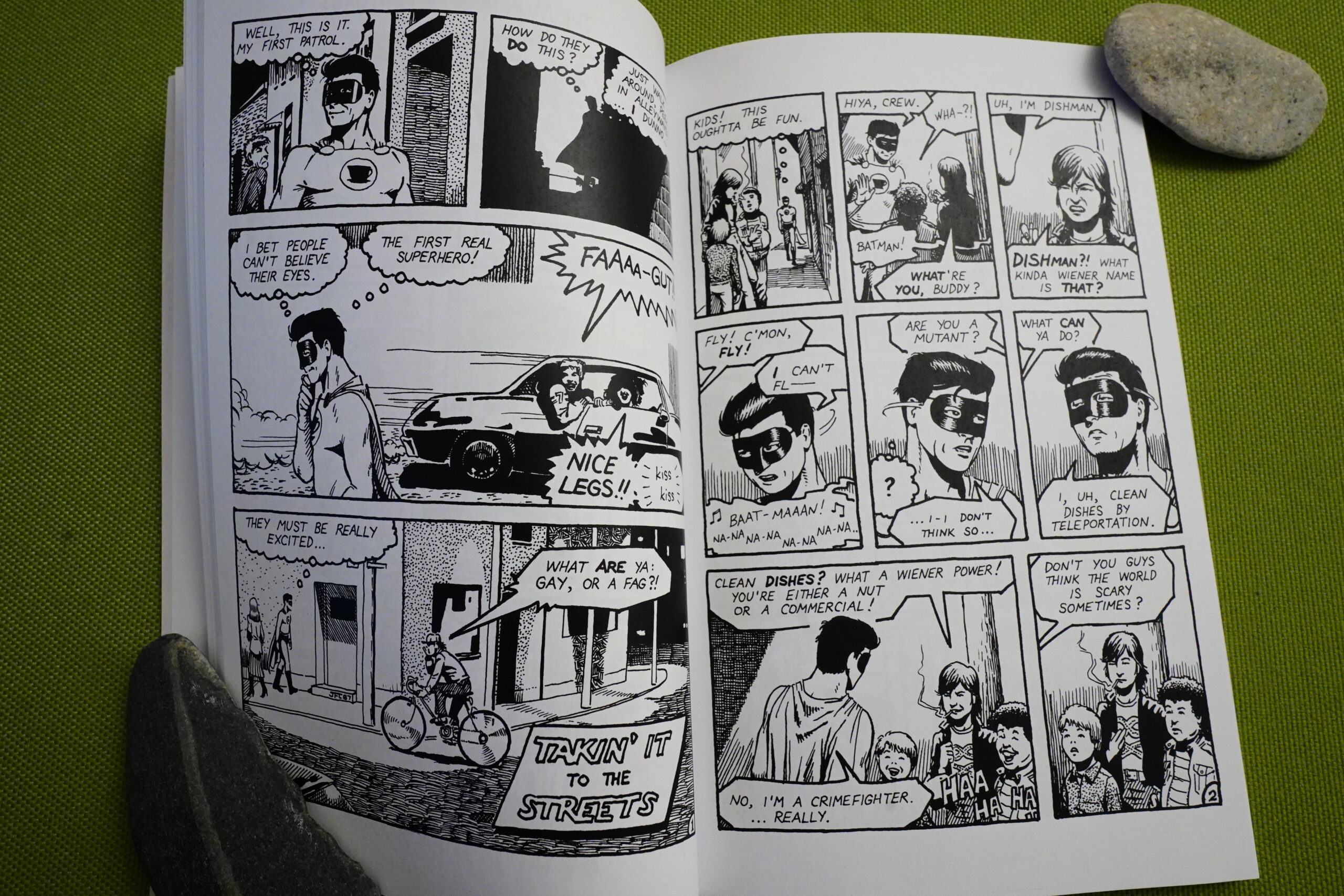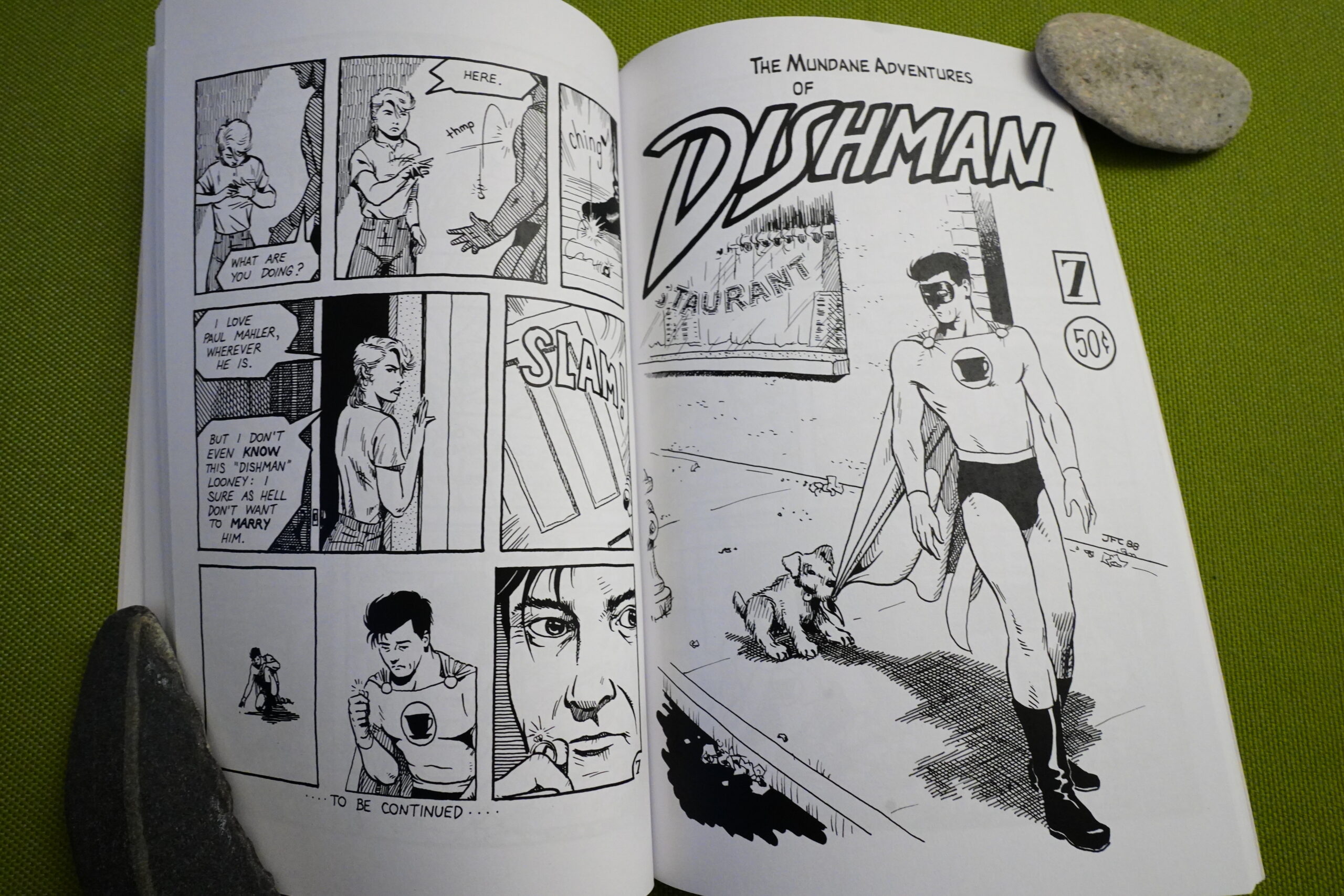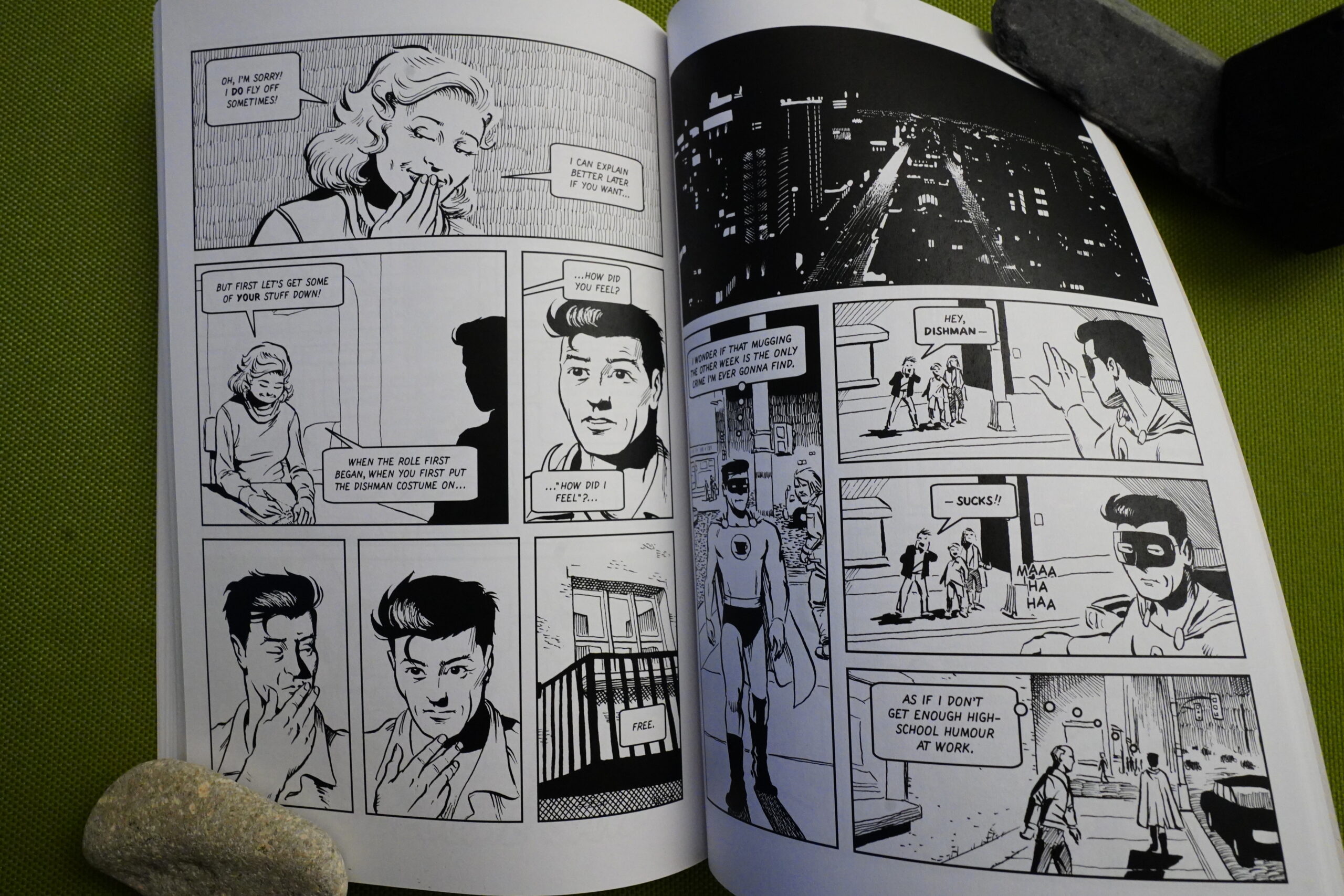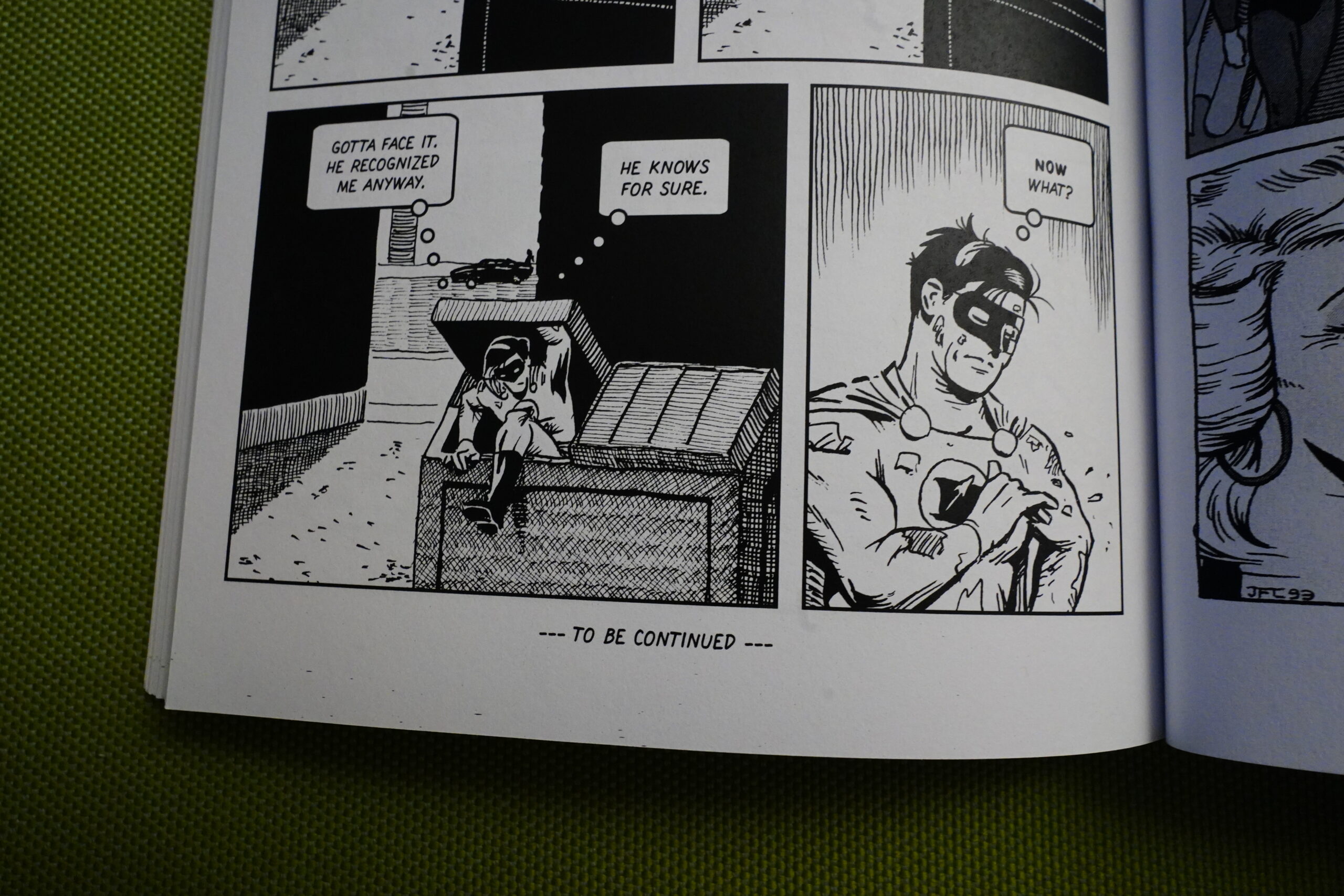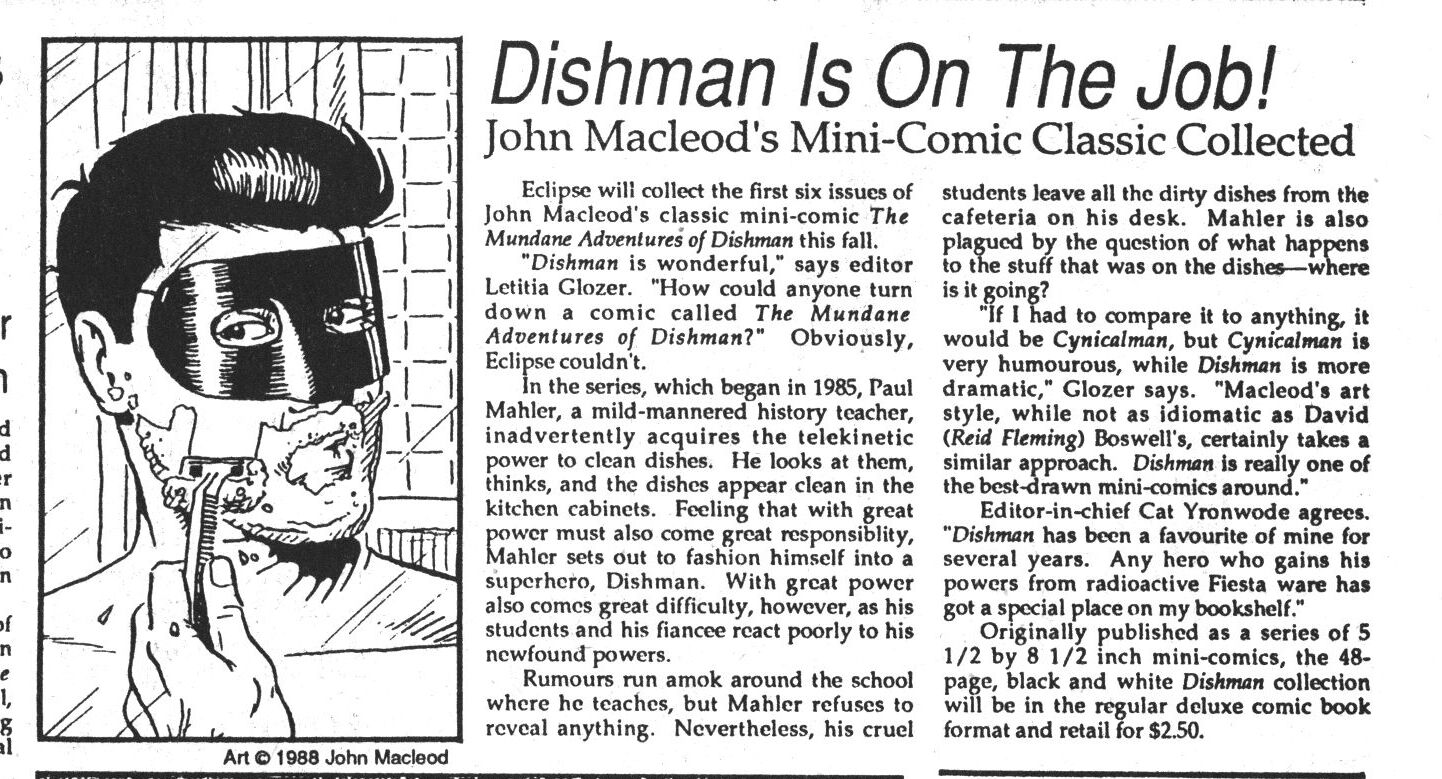The Mundane Adventures of Dishman (2023) by John MacLeod
As the indicia notes, this was originally (mostly) published in the 80s. I had some of those minis back then, so they had an abnormally wide distribution as minis go. But it doesn’t mention that Eclipse Comics reprinted the first six (I think?) issues, so if people have read this before, it’s mostly from that edition.
MacLeod talks about how unexpected the success of Dishman was back then.
This edition reprints everything from the original minis, including all the covers. And the size is the same too, I think? (The Eclipse version was standard US comics size, but this is a bit smaller.)
I loved Dishman back then, and I still do. First of all the artwork is almost supernaturally super sharp and attractive — it’s like halfway between Curt Swan and Jamie Hernandez or something. But it’s also just a wonderful concept: A guy eats off of radioactive Fiestaware plates and gets the power to do dishes.
It’s brilliant! In a lesser hand, a high concept thing like that would be played exclusively for yucks, but instead MacLeod takes it seriously (well, as serious as you can) and creates something intriguing out of it.
So, of course he gets a super-hero costume.
And then… tries to figure out how he’s going to use his power to fight crime.
Sure, it’s funny, but what makes it works is that the characters are great. And while each issue has story beats to make each one a good read, it’s also really coherent when read in this collected edition.
This is where the Eclipse book ended. Eclipse did its single issue during the Black & White Boom, when picked up a lot of small press stuff. The Boom went Bust, which may explain why there weren’t any further issues, but MacLeod self-published four more minis over the next couple of years (32 pages).
Then he picked it up again in 2018, almost three decades later. His art style has changed quite a bit in the intervening years.
But it’s just 16 more pages, and then it’s a new “to be continued” without anything much developing plot wise.
So I’m kinda disappointed that this book didn’t “wrap things up” in any satisfying way, but it’s a really enjoyable read anyway.
The book looks to be sold out from Black Eye, but you can buy the ebook version here .
Hal Hargit writes in Amazing Heroes #178, page #82:
Then there’s Dishman, a comic
book featuring the oddest radioactiv-
origin of a super-hero since
a certain nerd (now a cool guy, have
you noticed?) got bitten by an ir-
radiated spider. In Dishman, creator
John MacLeod has created the driest,
most matter-of-fact treatment of the
super-hero concept yet. The realistic
and calmly-paced art only adds to the
look of the which lives up to
its full title of The Mundane Aven-
tures of Dishman.
Oh—Dishman’s super-power? He
can clean’ and teleport dirty dishes
with a wave of his hand. Dumb, huh?
Hard to believe he figures out a way
to use this pmver to fight street crime,
isn’t it? Well, he does in the recently
released Dishman #8, and does it
while staying within the bounds of the
original, if admittedly silly, concept.
Ed Vick writes in Amazing Heroes #127, page #64:
Dishman is the mundane Nlarvel
approach of the early Spider-Man
taken to the extreme. The covers
depict that down-to-earth attitude
perfectly: Dishman leaning against a
bus stop, in a diner looking over a
menu (with the quintessential scuzzy
waitress for his order), iron-
ing his costume, shopping for cereal,
shaving. I wouldn’t be surprised—or
disappointed—if he never actually
fought crime, or got stomped more
likely.
Each digest is like an entire comic
in miniature: one part vocation, one
part love life, two parts costumed
adventure. Probably the only way to
further shorten a hero’s story is to
trivialize it beyond any possibility of
identification with the protagonist, as
Sharon Beach and MacLeod himself
did in Science Cruise, where they
covered the entire career of Pressman
(who could iron clothes with his bare
hands) in one eight page mini. Such
minimalism is interesting—how short
can a comic be and still work as a
story?—but I find Dishman far more
arresting. He may have a woosie
power and be exceptionally unexcep-
tional, and be unbelievably zealous,
and.
stVell, to put it in a nutshell, he may
be just like any comics fan approach-
ing middle age who suddenly finds
hitnself with “great power.” Maybe
that’s why I like him so ntuch.
The Standard Catalog of Comic Books #5, page #962:
Poking fun at the super-hero
genre by concocting heroes with
silly powers is a time-honored
tradition. John MacLeod’s Dish-
man, however, is unique in that
he gives his hero a really stupid
super-power, then refuses to
play it for laughs. The result is
bath interesting and profoundly
depressing.
The title character is Paul
Mahler, a school teacher about to be married. He’s just
packing up his old house, including the Fiestaware
dishes he’d been using for the past 10 years — which
were radioactive at a law level (an actual fact, accord-
ing to an article in Macleans on May 4, 1981 D. As he
finishes cleaning up, he wishes that the dishes in the
sink were clean, and, as if by magic, they are cleaned,
and put away instantly. Unfortunately, that’s the whole
extent of his super-power! Mahler still feels obliged to
become a crimefighter, and as a result, he quickly loses
his reputation, his fiancee, and his self-respect.
TM Maple writes in Amazing Heroes #152, page #84:
As far as I can tell from the advance
photocopy of this comic book that I
received, it is a straight reprint of the
first six issues of John MacLeod’s
self-published mini-comic of the same
name. Each “chapter” in this reprint
volume consists of the cover from the
mini-comic plus seven pages of story.
The print run for the mini-comic
version is given at the end of each
chapter and it appears to be quite
healthy (well in excess of
copies), to say the least. Hmvever, fis
edition from Eclipse should reach a
wider audience—and that’s good,
because Dishman deserves wider
recognition.
Paul Mahler is just an ordinary high
school teacher who happens to own
a set of the prized Fiestaware dishes.
Unbeknownst to him (though this is
a fict that has appeared in the media),
these dishes are radioactive. But this
is comics, folks, so instead of causing
some debilatating disease, this
radioactivity confers an amazing
power upon Mr. Mahler: the ability
to clean (and stack and store away!)
dirty dishes with the wave of his
hands! Okay, so it’s not one of the
greater super-powers on record but it
is a super-power, and since he has
reading comic books for the past
25 years, Mahler knows that “with
great power comes great respon-
sibility.” Thus, he does what he feels
he must do: Yes, he becomes a super-
hero, with the inspiring name of
Dishman![…]
Dishman may not be everyone’s cup
of tea (Ouch! Sorry) but it is an
engaging entry in the “real life super-
hero” category.
Nick Craine is interviewed in Comics Scene Volume 2 #29, page #14:
“What really got me into doing
comics in the first place,”
says
Craine, “was Dishman, about a ninth-
grade history teacher who has the
power to clean dishes by telekinesis.
He looks for crime to battle and
instead finds young kids smoking and
tells them what a bad habit it is. It
comes off beautifully. The book is by
John McLeod, who’s also from
Guelph. Here’s a guy in my home
town publishing his stuff for next to
nothing. John’s a real inspiration.”
Yup:
What makes this book exceptional is how it captures a sense of humanity in its characters. Paul feels like someone we get to know over time, and his supporting cast quickly becomes fleshed out. It also features plenty of funny scenes but none that are really mockery. Each chapter is brief but compelling, even though most of what happens is (like the title states) relatively mundane. I think this book may have been meant as a parody at first, but it grows into something much more sincere and relatable. It is a gem well worth seeking out.
This blog post is part of the Total Black Eye series.
